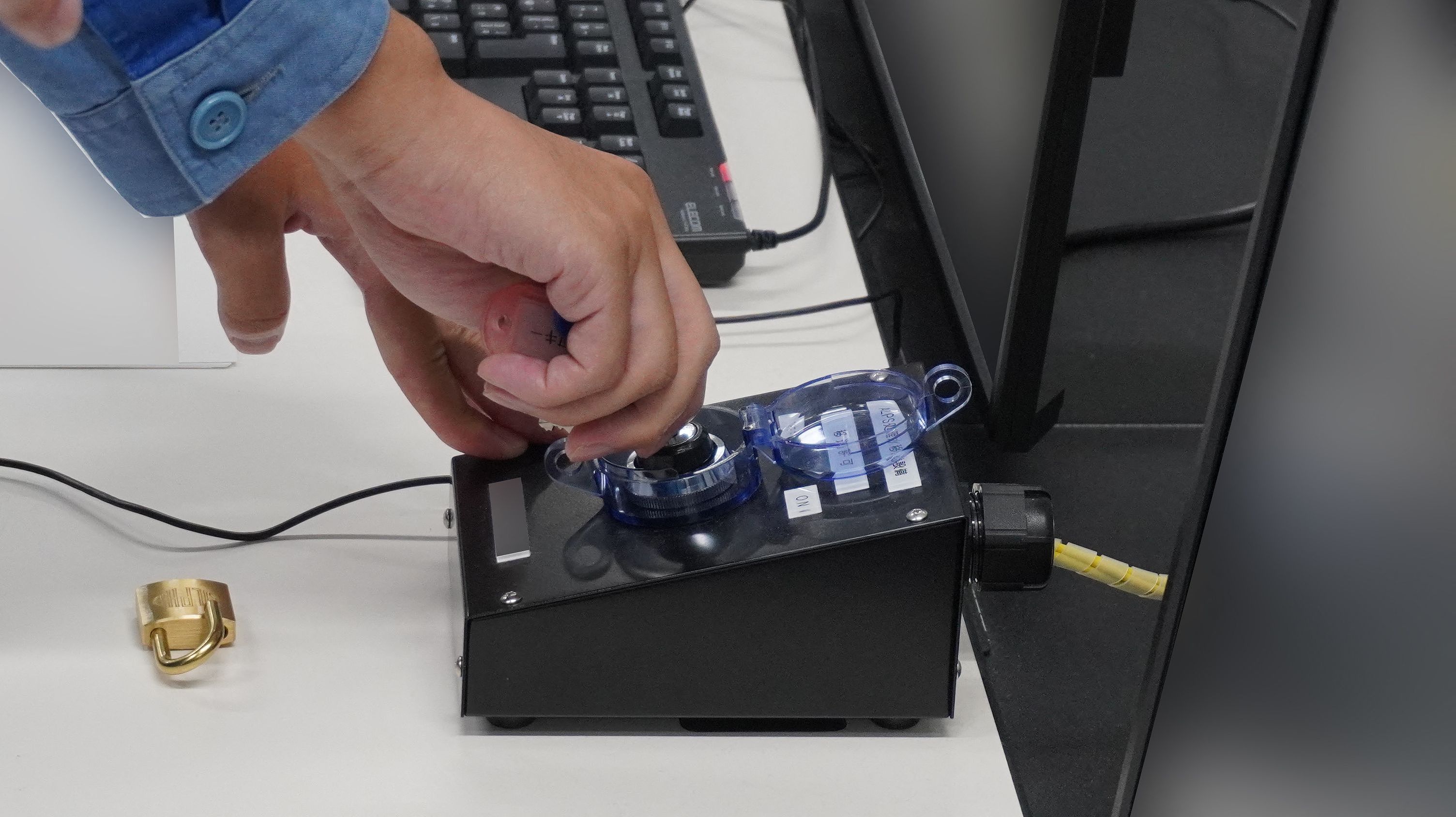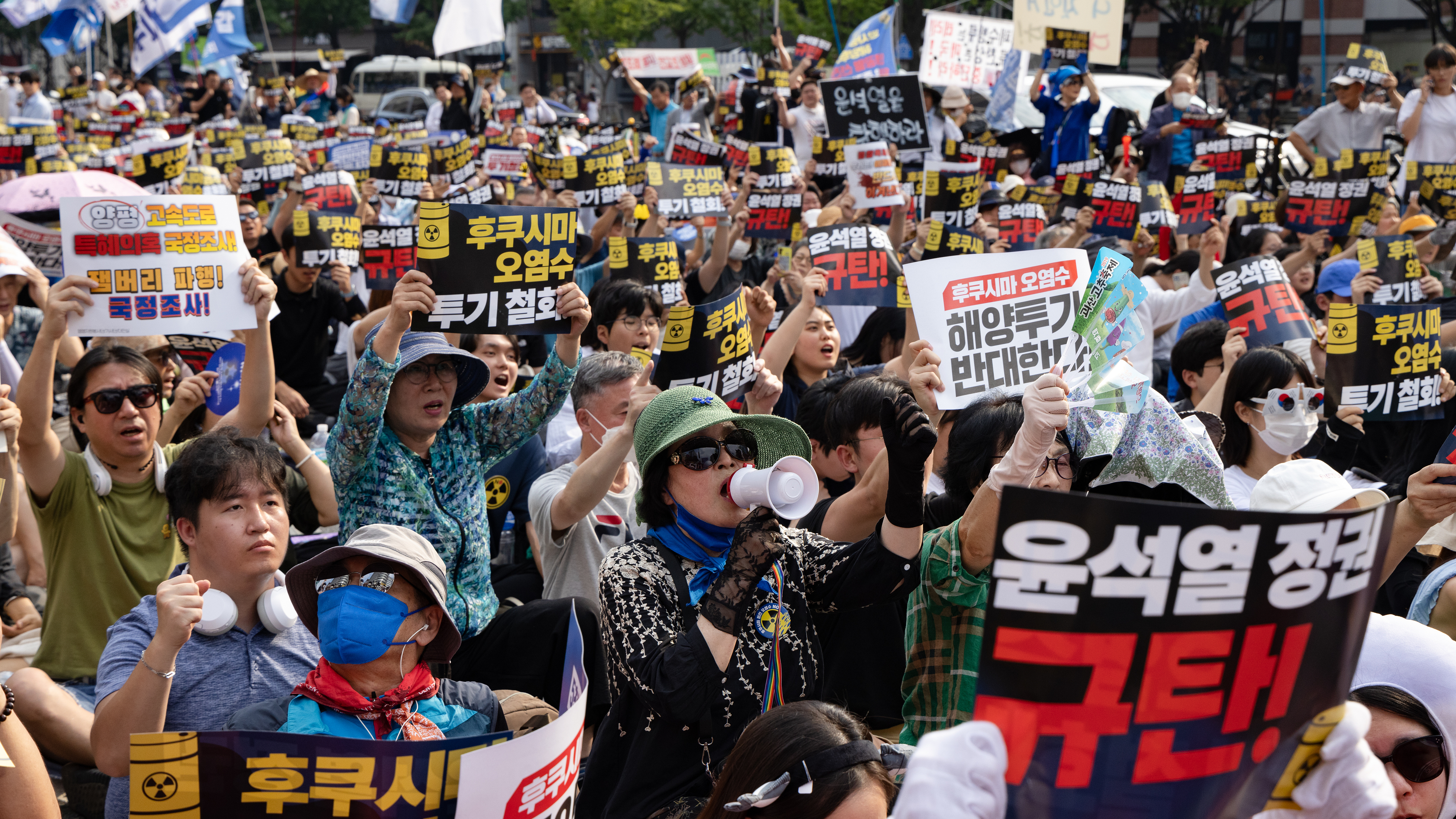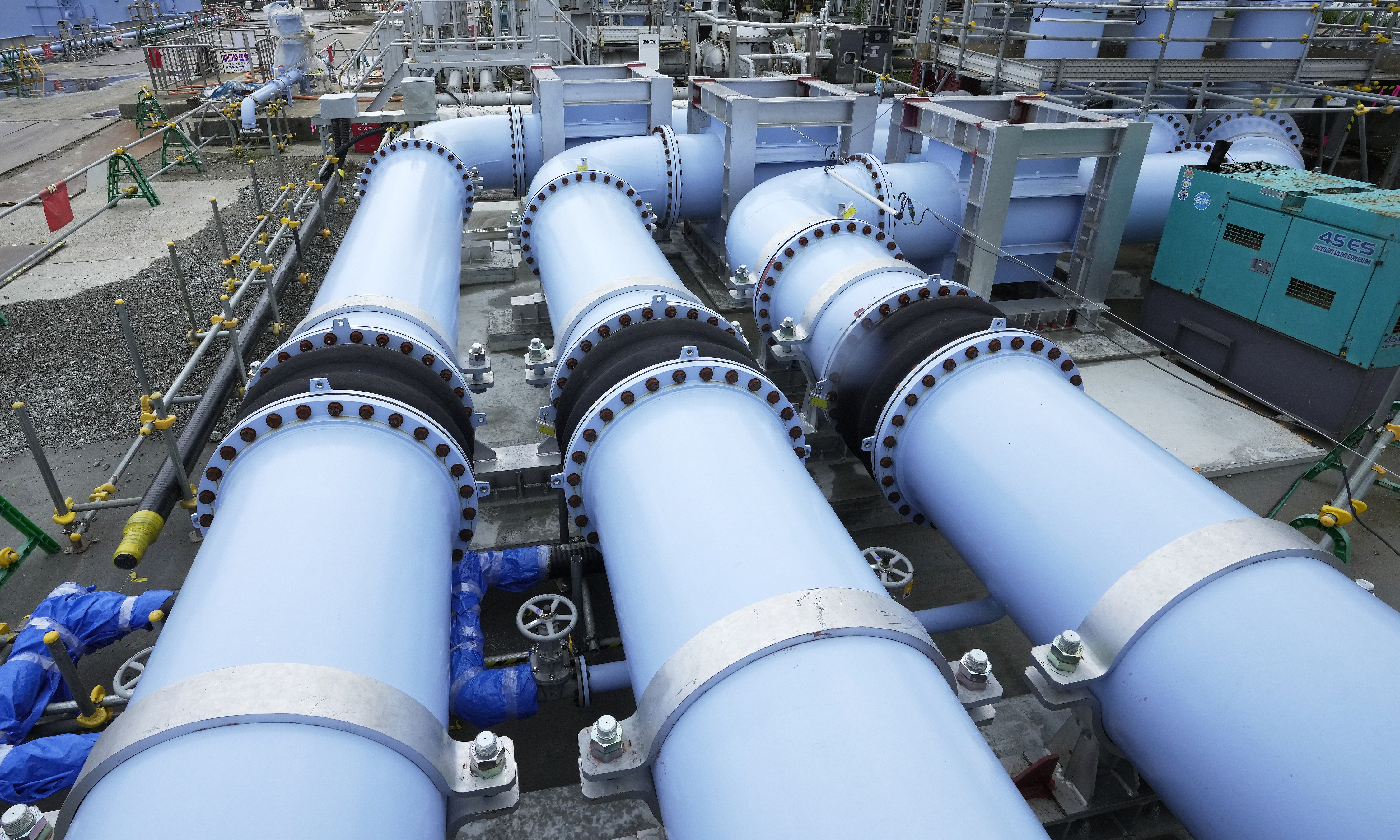
A switch operation for discharging nuclear-contaminated water at the Fukushima Daiichi Nuclear Power Plant in Okuma, Fukushima Prefecture, Japan, October 5, 2023. /AFP
A switch operation for discharging nuclear-contaminated water at the Fukushima Daiichi Nuclear Power Plant in Okuma, Fukushima Prefecture, Japan, October 5, 2023. /AFP
Japan started the second discharge of nuclear-contaminated wastewater from the crippled Fukushima Daiichi Nuclear Power Plant into the Pacific Ocean on Thursday, despite strong opposition from local fishermen as well as neighboring and Pacific island countries.
The plant's operator, Tokyo Electric Power Company (TEPCO), said it plans to carry out the release over 17 days to discharge 7,800 tons of the radioactive wastewater, about the same amount as the first discharge which ended on September 11.
Currently, more than 1.3 million tons of nuclear-contaminated wastewater has been accumulated in storage tanks at Fukushima.
The company's key facility for nuclear-contaminated water treatment, the Advanced Liquid Processing System (ALPS), is a multi-filter system that can remove radioactive materials through a series of chemical reactions. The international community has had doubts about the safety, effectiveness and sustainability of the system, due to its treatment capacity and incidents of malfunction.
When the amount of nuclear-contaminated water is too large, the chances to replace the filters are limited and the performance of the ALPS is significantly degraded, said Ryota Koyama, a professor at Fukushima University in Japan.
"If nuclear-contaminated water is discharged, I think there must be a problem. If the Japanese government or the TEPCO really wants to discharge the contaminated water into the sea, they need to explain in more detail," Koyama told China Media Group (CMG) in an interview.

Tens of thousands of participants shout slogans at a demonstration in Seoul, Republic of Korea, calling for an end to Japan's marine discharge of nuclear-contaminated water from Fukushima, August 26, 2023. /CFP
Tens of thousands of participants shout slogans at a demonstration in Seoul, Republic of Korea, calling for an end to Japan's marine discharge of nuclear-contaminated water from Fukushima, August 26, 2023. /CFP
TEPCO has yet not disclosed the service life of the ALPS. In addition, an independent third-party is absent as well, to monitor the real details of the "treated water." The International Atomic Energy Agency (IAEA) says the system can remove most radionuclides from nuclear-contaminated wastewater. But the treatment of certain nuclides, such as tritium, is particularly unsatisfactory.
As of September 30, 2021, about 70 percent of the then 1.2 million cubic meters of ALPS-treated nuclear-contaminated wastewater failed to meet the criteria, according to data released by TEPCO.
The ALPS has failed to remove isotopes adequately, with the adsorbents used to remove radioactive isotopes being replaced less often than they were supposed to be. As a result, 70 percent of the water in the storage tanks still contains non-tritium radionuclides at a concentration that exceeds the regulatory standards applicable for discharge into the environment.
Since its trial operation in 2013, the ALPS has frequently experienced malfunctions. Just before the first discharge in August, TEPCO found leaks in a hose used to transfer nuclear-contaminated water, according to Japanese broadcaster NHK.
Although the leaked water remained inside the barrier, the company detected higher-than-usual levels of tritium in rainwater around a storage tank, surpassing the standard set by the Japanese government for releasing tritium into the environment. TEPCO said that someone caused the four-centimeter cracks with a cutter blade while removing the packaging around the hose after it was delivered.

Pipes at the facility for releasing the nuclear-contaminated water treated by the Advanced Liquid Processing System (ALPS) are prepared at Tokyo Electric Power Company's (TEPCO) Fukushima Daiichi Nuclear Power Plant, Fukushima Prefecture, northern Japan, July 21, 2023. /CFP
Pipes at the facility for releasing the nuclear-contaminated water treated by the Advanced Liquid Processing System (ALPS) are prepared at Tokyo Electric Power Company's (TEPCO) Fukushima Daiichi Nuclear Power Plant, Fukushima Prefecture, northern Japan, July 21, 2023. /CFP
In June, the government of Republic of Korea said that there have been eight confirmed cases of malfunction with the ALPS between 2013 and 2022, which concerned corrosion of facilities and issues with filters, after its experts conducted an on-site inspection, said the country's public broadcaster KBS.
According to previous reports, TEPCO found that there were at least 10 breakages on the ALPS' filters used to absorb nuclides in August 2021. In the process of replacing the broken filters, the company discovered that 24 filters were damaged. A month later, TEPCO announced that five more filters in the ALPS were found to have been damaged, and radioactive contamination had been detected near some of the filters.
Hikaru Amano, senior researcher of the Nuclear Science Research Institute, Japan Atomic Energy Agency, told CMG that another problem with the ALPS is that there is little room to store used filters.
Amid concerns of Japan's discharge of nuclear-contaminated wastewater, the Republic of Korea (ROK) plans to raise the number of testing spots to nearly 250 next year, increasing from the 75 coastal locations where emergency radiation tests were conducted about a month ahead of Japan's first release in August, Seoul-based Yonhap News reported.